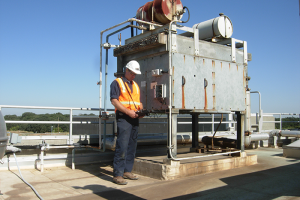Strategies to improve health care sustainability
Hospital CEOs, CFOs and other senior leaders are expected to be good financial stewards, assuming fiduciary responsibility for sustainable organizational success. A similar expectation has been evolving when it comes to environmental stewardship.
Nevertheless, the path to achieving environmental sustainability is not always clear or easy. These are just a couple of the key findings that stood out from Health Facilities Management's 2015 Sustainable Operations Survey.
The survey, conducted jointly with the American Society for Healthcare Engineering and the Association for the Healthcare Environment, explored how hospitals are managing energy and water consumption, regulated and nonregulated medical waste streams and hazardous chemicals used in cleaning and disinfecting facilities.
The survey results showed that hospitals continue to make steady progress in all of these areas, but the underlying message in the data underscored opportunities for improvement.
Move beyond cost
As we saw in our sustainable operations surveys in 2013 and 2010, tight finances in many organizations can make it challenging to obtain capital and other resources to achieve program objectives. That may help to explain why so many responding organizations tend to focus on relatively low-cost areas of energy management such as opting for energy-efficient lamps (94 percent) or installing LED exit signs (89 percent), while far fewer have upgraded to distributed heating/cooling systems (65 percent) over a centralized system. And still fewer respondents (61 percent) have implemented preventive maintenance programs that track cost savings — a move that can make it easier to develop a more compelling case for this capital improvement.
Fully measure what's managed
It was apparent from the data that opportunities exist to improve analytics. While nearly seven in 10 respondents measure energy consumption, only 37 percent include performance metrics such as the Environmental Protection Agency's Energy Star rating, total waste generation or a recycling rate in their senior management dashboards. As one of our sources who helped to analyze the data pointed out, "Collecting data without targets is a lost opportunity for savings."
For more insights on the 2015 Sustainable Operations Survey, check out the rest of this blog on Health Forum's website.




